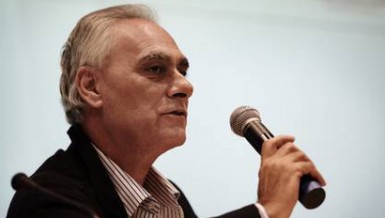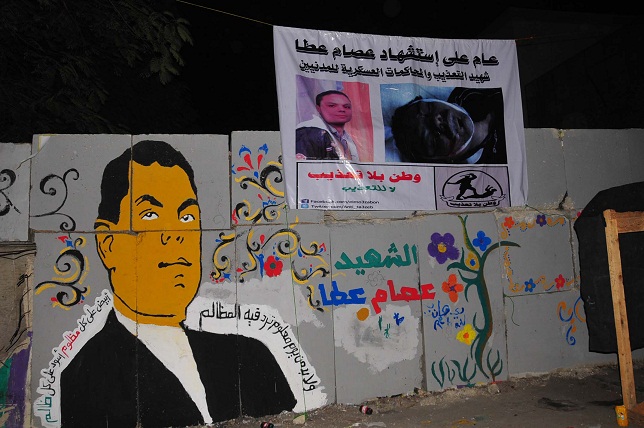
By James M Dorsey
Qatar is taking a beating in the court of public opinion with almost daily headlines raising questions about the way the Gulf state does business. Yet, its hosting of the 2022 World Cup is emerging six months into the reign of Qatar’s new emir as an agent of change.
Harsh working and living conditions for foreign workers who constitute the majority of the country’s estimated 2 million inhabitants have cemented Qatar’s image as a country that practices a modern form of slavery. Qatar’s failure to communicate its efforts to address the criticism in structural ways that go far beyond window dressing has done little to counter that negative image.
That image is compounded by the tale of a French-Algerian football player who suffered serious damage to his career because he was denied an exit visa for 17 months as a result of a financial dispute with his sponsor, Al Jaish FC. For a mere €120,00 ($164,000) settlement with Zahir Belounis, Qatar could have avoided the far greater cost to its image that weeks of news coverage had cost it and that defending itself in a French court in which the player asserts that he was a victim of “fraud, inhuman working conditions, forgery and aggravated extortion of money” will cost it.
Adding insult to injury, Britain’s Daily Telegraph last week disclosed that DLA Piper, the international law firm Qatar tasked with conducting an independent investigation into allegations of abuse of foreign workers involved in the construction of World Cup-related infrastructure made by Amnesty International, also acts a paid lobbyist for the state-owned Al Jazeera television network. The apparent conflict of interest raised doubts on how independent its investigation would be.
Furthermore, the sentencing last week of the former chief executive and chairman of failed Icelandic bank Kaupthing to at least five years in prison on charges of fraud and market manipulation related to the acquisition of a 5% stake in the bank by Sheikh Mohammed Bin Khalifa Bin Hamad Al Thani, a member of Qatar’s ruling family, did little to enhance the 21st century, cutting edge image the Gulf state is seeking to create through sports, arts and foreign investment as a pillar of its soft power strategy.
Much like British bank Barclays that was fined £50m ($84.5m) by the UK banking regulator for failing to disclose £322m ($524m) in fees paid to Qatari investors during two cash calls and Credit Suisse’s granting of a loan to Qatar as part of a CHF 10bn ($11.25) capital raise, the Kaupthing executives stand accused of having lent Sheikh Mohammed the funds he needed to buy his stake in the bank.
The stream of bad news contrasts starkly with the steps Qatari institutions are taking to address labour issues both in an effort to counter criticism and fend off demands by international trade unions for the granting of political rights, such as the right to form independent unions and to collective bargaining to foreign workers and, equally important, the World Cup’s breaking of taboos on discussions of such rights. In a country in which nationals account for only 10% of the population and a mere 6% of the workforce and in which non-Qataris have no rights or prospects beyond fulfilling their employment contracts, such debate goes to the core of the future nature of the Qatari state and society.
In an almost unprecedented vision of a future Qatar, policy strategist, columnist and businessman Jassim bin Sosibo Al Thani, a member of the ruling family but not one of its decision makers, mapped out a society that would be non-racist, non-sexist and Islamic rather than Arab and that would be inclusive in its definition of the country’s youth as both Qatari and non-Qatari – a move that if adopted would radically transform Qatar.
Mr Al Thani’s vision, published in Qatar Chronicles, came as Qatar’s new emir, Sheikh Tamim bin Hamad bin Khalifa Al Thani, appeared to be focusing his attention on domestic rather than foreign issues amid griping by Qataris over the country’s population explosion, unchecked Westernisation; inflation, and gridlock in a city that is one big construction site.
“Qatar belongs to all its youth; Arabs and non-Arabs, male and female. Every young person who was born here is a citizen of Qatar; a country on the West Asian continent. As a consequence, we are Asians regardless of race, colour, gender or creed… Our success depends on the country and continent’s ability to move in a steady direction, through which we are united with one common purpose as a people together in our diversity. Thus, we propose that young people embrace the diversity that is their birth right, bearing in mind that it is not and must never be a source of division,” Mr Al Thani asserted in a break with the notion that birth does not give anyone but Qataris rights and a national identity that has hitherto focused on the country being Arab.
The businessman and strategist furthermore propagated a society that would be based on Islamic values, social justice and fundamental human rights rather than an autocratic state in which the emir effectively has absolute power, although he did not say so explicitly. “This commitment is based on the understanding that our society cannot move forward if today’s conditions are still the same as those of yesterday. Consequently, we have to grapple with the enduring insight that Qatar will not succeed merely on the basis of ‘stability and continuity,’” Mr Al Thani said.
With the emir moving to apply lessons of the Singapore model by increasingly moving Qataris into positions of responsibility and streamlining Qatar’s bureaucracy and making it more efficient and responsive to people’s needs, Mr Al Thani decried Qatari society’s “erosion of values of honesty, loyalty, social solidarity [and] commitment to the responsibilities to which we are charged whether in the private or public sectors. This is manifest in such malaise as corruption, an entitlement culture, below average performance in the work place, low levels of service to the people [customer service] accompanied by demands for more and more rewards.”
Mr Al Thani said his comments were meant to spark discussion among youth and forge a “consensus in pursuit of building a Qatar that belongs to all who live in it”.
James M Dorsey is a senior fellow at the S. Rajaratnam School of International Studies, co-director of the University of Würzburg’s Institute for Fan Culture, and the author of The Turbulent World of Middle East Soccer blog and a forthcoming book with the same title.




